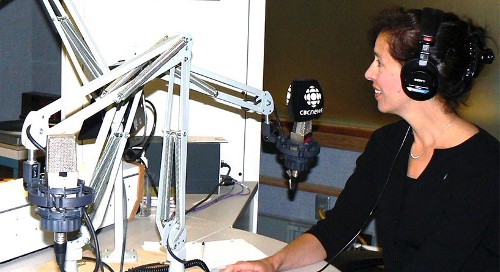Effective Communication
.
Article I. The Difference Between Talking and Communicating
by Reuben E. Gross, M.A., M.S., PhD, ABP, ABPP, FAACP, LMFT
For a free 15 minute consultation call:
Office Phone: (201) 836-2737
Cell Phone: (201) 218-3112
Office Address: 1299 Wellington Avenue, Teaneck, NJ 07666

Please note: Neither gender wins an Emmy for communication. If I alternate between “he” and “she” in order to be “fair” to both genders, it can be confusing to the reader. Therefore, for the sake of simplicity, I will begin with “he” when discussing the “TV speaker,” and then switch genders, using the word “she” for the remainder of the article. All of my points are relevant to both sexes.
Getting the message across to the other person is the essence of communication. Therefore, the communicator should be able to: 1. Express himself clearly, concisely and in a friendly manner, 2. Use skill in gearing his words to the setting and context of the situation as well as the person to whom he is talking, 3. Make sure that he is understood, and 4. In all relationships, but especially in the context of a marriage or couple relationship, the speaker should encourage and be warmly receptive and sensitive to his partner's communications.
Are Talking and Communicating the Same?
Many people have never considered the difference between “talking” and “communicating.” In fact, talking and communicating are two different activities.
Talking is uttering words with the goal of getting a message across; sometimes it works, sometimes it doesn't. Communicating refers to one step further in the process: it is the successful transmission of a message. When a person talks to his partner and there is no communication, the relationship will suffer.

Do Radio / TV Announcers Talk Or Communicate?
In choosing a metaphor to illustrate my point, may I offer that of a radio or TV blaring away in an empty bedroom. The person who is talking maybe thousands of miles away from that empty bedroom. He has no idea who—if anybody—in that room is listening to him (or that the room and the TV exist in the first place). And even if someone did step into the room at some point, the speaker would have no idea who the potential listener might be. Nor would the speaker know whether that "someone" is paying attention, is interested in what he's saying, or understands the concepts proposed or the terminology used to express them. In short, the speaker does not know anything about "the listener," nor can he adjust his words to make them more intelligible or interesting to "the listener" in any way. The speaker simply talks and hopes that someone, somewhere out there is listening, and understands what he is talking about. But all this is wishful thinking. For all he knows, his microphone isn't even plugged in. Consequently, no one is listening to him and he is talking to the four walls of the studio. But the speaker may have no clue about this while reading his carefully prepared script and making his points with energy and enthusiasm.
Unfortunately, many of us reenact a scenario that resembles the problem of the TV announcer when we talk to a "listener" while focusing on our own desires --often, in a burst of emotion. In such instances, we frequently fail to focus on the listener and his/her needs. We are often remiss in adjusting our words or thoughts to the situation, the specific context and setting in which we may be at the time, and the receptivity of the person we are trying to influence.
How To Maximize Communication
As one can gather from the aforementioned metaphor of the radio speaker, communicating a message entails a number of steps. Before she says a word, the speaker must make sure that she has the full attention of her target listener. If he is busy doing something, she should ask if she may interrupt. If it is not convenient for her partner to talk at that time, they should agree on a specific time to talk. The speaker must stick to the topic that is on her mind, be self-aware enough to know her true feelings on the matter, and clear in her mind as to how she wishes to approach the subject. She does not have to figure out a complicated strategy as regards the progress of the conversation, but she should be aware of how she wishes to begin. She should say what is on her mind in a clear voice, adjust her rate of speech and volume to the technical barriers between them, e.g., cell phone receptivity, physical distance or ambient noise level (TV in the background, kids fighting, etc.) She should speak clearly, express herself accurately, and get to the point as quickly as is reasonable, depending upon the complexity of the problem.

In addition to the above steps, she should keep her eyes focused on the person to whom she is talking. She should follow the listener’s facial expressions, nodding of the head and other non-verbal as well as verbal sources of feedback to ensure that her message is being received and understood. If a person neglects to do all of the above-mentioned subtasks, she is not doing her best to assure communication, she is just talking.
Sometimes the Speaker is Lucky
As noted, if the speaker fails to take the proper steps to communicate, the speaker did not communicate properly…she just talked. Sometimes, however, in spite of all the speaker’s failings, she does get her point across and her mere talking actually becomes a communication. This could happen if the speaker is fortunate enough to have a boyfriend/husband who is not only perceptive but acutely attuned to her. But this is pure luck. No one should depend on luck because, in real life, the speaker will not find out whether or not she successfully communicated her point until later when the assigned task was completed or was ignored and the damage has already been done. This is especially true in a case where she failed to communicate something important or asked him to do something that had a time limit.
Summary
Clearly, talking is not always communicating. If a person wants to communicate with another, it is primarily the responsibility of the speaker to make sure that the transmission of her message actually takes place.
When she is satisfied that he understands, she may then proceed to the next step in those situations where she is asking for some action on her partner’s part. She should not assume that just because he understands her, it means that he agrees with what she said, or is willing to comply with her wishes. She should then ask if he agrees with what was said, and will he comply with her request. And even after following all the rules of good communication, if the speaker has any doubts about her success in transmitting her message, she can always say to the listener “This is important to me, and I want to make sure that you understood me, would you please tell me what I just said, or what I am asking you to do.
In all communications, but especially in communication within a couple, there is a second requirement: the speaker also is a good listener.
The speaker must always pay careful attention to what the other person has to say on the subject and be ready to encounter disagreement. When each person is both a speaker and listener, it enables the discussion or argument to go back and forth respectfully, and step by step, until there is a mutual understanding of each other’s position.
For good communication to take place, the discussants are not required to agree on the spot or come to an immediate solution to the problem. They are only required to express honestly, clearly and respectfully what is on their minds, and listen carefully to each other so that they will understand what is on their partner’s mind. Good communication is the first step in problem-solving and relationship building.
Back to Top of Page
End of Article I: "The Difference Between Talking and Communicating"
For more articles on "Effective Communication" please click here.
Inquiries Welcome
I offer personal and online help.
|
The quickest way to reach Dr. Gross is by phone
|